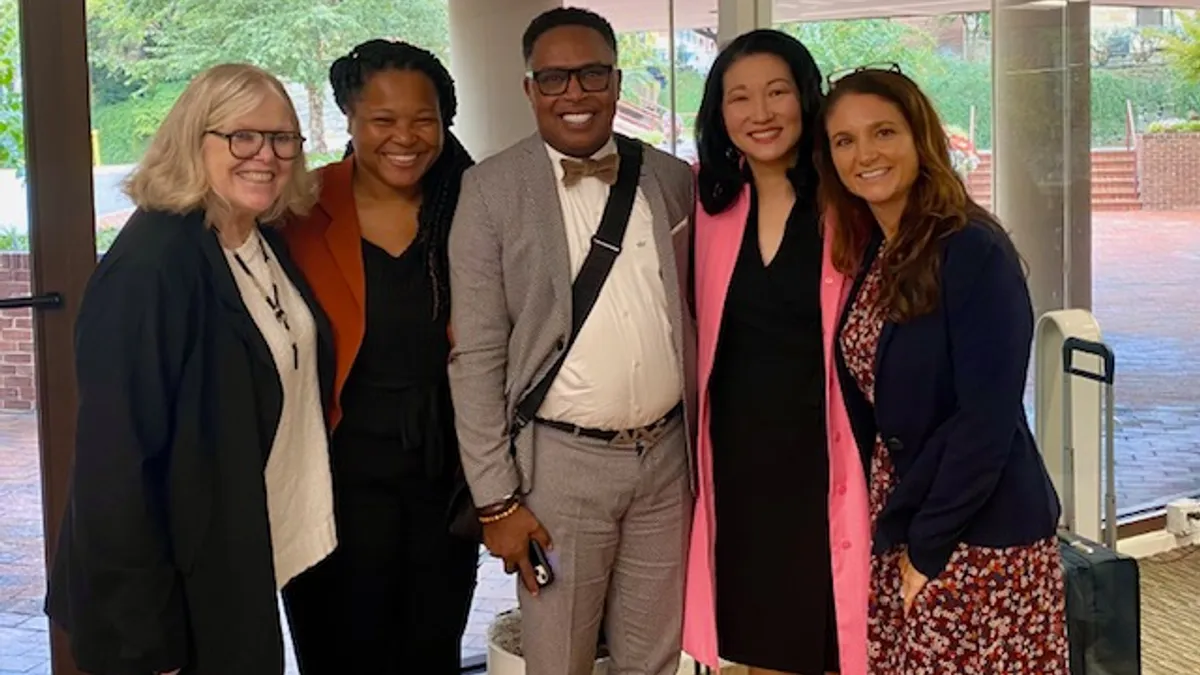WASHINGTON — More investments are needed to support early childhood professionals' entries into the workforce and onto successful career pathways, said representatives of early education organizations during a panel Wednesday.
Speakers also stressed the need for more messaging on the value that the early childhood profession brings to the overall economy in allowing parents to work. The panel was hosted by StraighterLine, a company that offers college courses, and Whiteboard Advisors, a research and communications consulting firm.
Wednesday's conversation took place just before a portion of federal COVID-19 recovery funding for the child care industry expires on Saturday — and as the federal government faces a potential shutdown.
If Congress can't agree on appropriations to continue funding the government past Sept. 30, the National Head Start Association said, 10 programs serving more than 10,000 children and families across the U.S. would immediately lose access to services.
Additionally, a Brookings Institute commentary published Tuesday said the labor force gains made by mothers could face setbacks due to the end of the federal COVID child care stabilization grants. The report said one-fifth of mothers with young children who wanted a job in 2023 weren’t looking for one due to child care-related concerns, according to its analysis of U.S. Census Bureau data.
These developments are on top of ongoing staffing and enrollment issues putting pressure on early education since the pandemic. Some solutions panelists discussed included supports for early childhood providers, partnerships with universities for educator preparation, and expanded access to child care for families.
"When you become a working parent, you are faced with some fundamental choices of how you're going to navigate wanting to continue to contribute to the workforce meaningfully," said Michelle Kang, CEO of the National Association for the Education of Young Children. "If you don't have access to high-quality, affordable child care, your choices become much more difficult."
Kang added that quality child care includes holistic supports and training for educators. "Caring for young children is not easy," she said.
The panelists discussed the challenge of meeting the demand to employ staff with degrees, credentials and training — while also keeping child care affordable and accessible for families.
An essential public good
The national per-hour median pay for a child care worker in 2022 was $13.71, which amounts to $28,520 annually, according to the U.S. Bureau of Labor Statistics.
Some 44% of early childhood providers reported experiencing at least one area of financial hardship, including paying for housing, food, health care and child care, according to survey results released Tuesday by the RAPID Survey Project at Stanford University's Center on Early Childhood. The survey also found more than half, 53%, of child care providers who are not center-based, but rather are family, friends or neighbors of the children they care for, said they experienced food insecurity.
Calvin Moore, Jr., CEO of the Council for Professional Recognition, which administers the child development associate, or CDA, credential, said the time is ripe for a new system for caring for young children that is more accessible and publicly supported.
He said while he's encouraged by state actions to create universal Pre-K programs, those often don't address care for infants and toddlers.
"I wonder how long we're going to put Band-Aids on this infrastructure," said Moore. "I think we have to do more to find a way to really view this portion of our education system as essential and the public good."
A 2022 survey of CDA credential holders conducted by the Council for Professional Recognition and released Sept. 12, found nearly half of child care programs lost staff, and 60% reported challenges in hiring staff. The survey results are based on responses from 5,343 CDA holders and findings from focus groups that included early childhood center owners and hiring managers.
In Washington, D.C., pre-K provider AppleTree Institute has several initiatives underway to strengthen and expand its workforce, said Crystal Hill, the company’s chief people officer.
One program is an early learning teacher residency, which offers salaried positions and mentorship while educators earn early childhood certificates. AppleTree also partners with area universities to help early childhood educators earn their child development associate credential, Hill said.
"We realized we have to build our own pipelines, and we're doing a lot of work to build those pipelines," Hill said.













